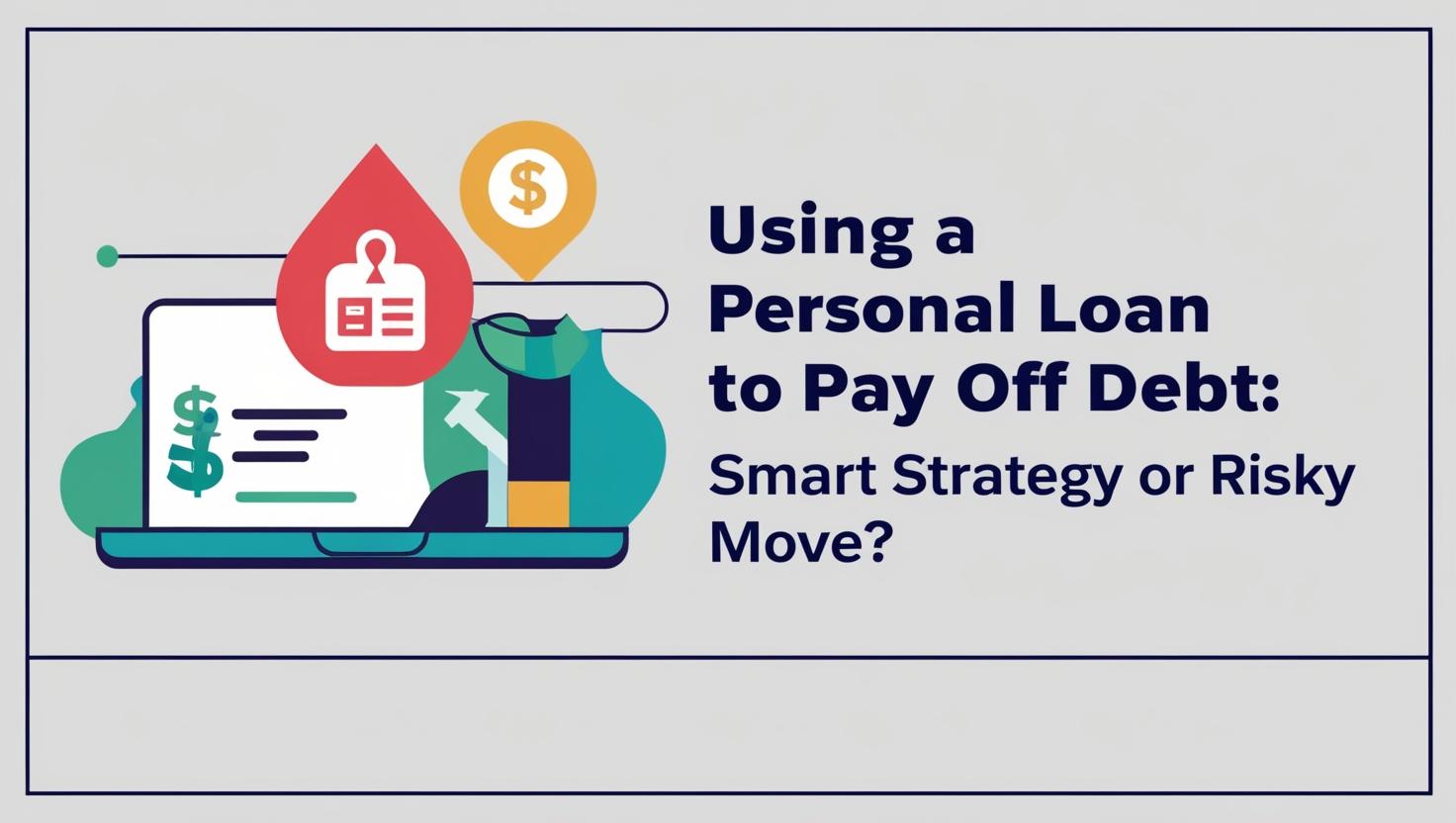I learned about “smart money moves few years ago, when I was lost in financial uncertainty. I had financial challenges, and worried about saving for the future. These strategies helped me feel better and set me on a path to financial freedom.
In this guide, we’ll cover the basics of personal finance. You’ll get the knowledge and tools to make smart choices for your financial goals. This article will help you take charge of your money and build a secure future.
Key Takeaways
- Develop a clear understanding of financial planning fundamentals
- Establish realistic budgeting and savings strategies
- Explore smart investment options for long-term wealth building
- Implement effective debt management techniques
- Maximize retirement savings and tax-efficient planning
Understanding the Fundamentals of Financial Planning with Smart Money Moves
Mastering personal finance is key to long-term success. It starts with setting clear goals, making a budget, and tracking your money. Incorporating smart money moves into these steps is crucial for effective financial planning.
Setting Clear Financial Goals: A Smart Money Moves Approach
The first step is to set your financial goals. These should be specific, measurable, achievable, relevant, and time-bound (SMART). Goals can be anything like saving for a house, paying off loans, or planning for retirement. Using smart money moves to set and achieve these goals helps guide your decisions and keeps you motivated.
Creating a Realistic Budget Framework with Smart Money Moves
After setting your goals, create a budget. This means tracking your income and categorizing your expenses. By applying smart money moves, you can ensure your spending aligns with your priorities. This helps you stay on track and move closer to achieving your financial goals.
Tracking Income and Expenses the Smart Money Moves Way
Understanding your income and expenses is vital. Use a budgeting app, spreadsheet, or simply keep detailed records. This allows you to make informed, smart money moves and find ways to optimize your finances. It also helps you stay focused and disciplined as you work toward your goals.
| Financial Goal | Budgeting | Income Management | Expense Tracking |
|---|---|---|---|
| Saving for a down payment on a house | Allocate a specific percentage of your income towards this goal | Ensure stable and consistent income sources | Monitor and limit discretionary spending to maximize savings |
| Paying off student loans | Create a debt repayment plan and allocate funds accordingly | Explore opportunities to increase income, such as a side hustle | Carefully track loan payments and interest accrued |
| Building a comfortable retirement fund | Contribute regularly to retirement accounts, such as a 401(k) or IRA | Maximize contributions to take advantage of employer matches and tax benefits | Monitor investment performance and make adjustments as needed |
By understanding and using these basic steps, you can reach your financial goals. This will help you build a stable financial future.
Smart Money Moves for Building Wealth
Wealth accumulation is key to long-term financial success. By using investment strategies and asset building techniques, you can grow your wealth. This section will cover the main principles and steps to reach your wealth goals.
Consistent saving is a basic step in wealth building. Setting aside a part of your income for savings is crucial. This money can then be used to explore investment opportunities that fit your risk level and goals.
Diversifying your investments is also vital. By spreading your money across different types, like stocks and bonds, you can reduce risk. Regularly checking and adjusting your portfolio helps keep your asset building on track.
| Investment Strategy | Potential Benefits |
|---|---|
| Stocks | Long-term capital appreciation, dividend income |
| Bonds | Steady income, lower volatility |
| Real Estate | Passive rental income, potential property value appreciation |
| Alternative Investments | Diversification, unique growth opportunities |
Wealth accumulation is a journey, not a goal. By making smart money moves regularly, you can control your financial future. This leads to long-term financial growth and stability.
Emergency Fund Essentials: Your Financial Safety Net
Having an Emergency Fund: A Smart Money Moves Strategy
Having an emergency fund is key to financial security. It acts as a buffer against unexpected expenses. This way, you can handle life’s surprises without touching your long-term savings or getting into debt. Making sure you have an emergency fund is one of the smartest money moves you can make for financial stability.
How Much to Save with Smart Money Moves
The size of your emergency fund depends on several factors. A common guideline is to save three to six months’ worth of living expenses. This amount helps cover unexpected costs like medical bills or car repairs. Applying smart money moves here means calculating how much you need based on your income, expenses, and financial commitments.
Where to Keep Your Emergency Fund: Smart Money Moves Options
- High-yield savings account: This option gives you easy access to your money while earning a bit of interest. It’s a smart money moves choice for keeping your emergency savings safe.
- Money market account: Like a savings account, money market accounts offer higher yields but still keep your money liquid.
- Short-term CDs (Certificate of Deposit): Though less accessible, short-term CDs can give you a bit more return on your emergency fund—a strategic smart money moves decision.
Building Your Fund Systematically with Smart Money Moves
Regular, automatic transfers are one of the best smart money moves to grow your emergency fund. Set up automatic transfers from your checking account to your savings account. By doing this consistently, you’ll achieve your goal faster without even thinking about it refers from your checking to your emergency savings. Also, save any unexpected money, like tax refunds or bonuses, to boost your fund faster.
Keeping an adequate emergency fund is vital for good financial planning. By figuring out how much to save, choosing the right place to save it, and adding to it regularly, you build a strong safety net. This protects your financial well-being.
Mastering Debt Management Strategies
Getting financially stable and growing often means being proactive with debt reduction, credit management, and smart debt consolidation. Knowing how interest rates work and using good debt management can help you control your money. This leads to a better financial future.
First, focus on paying off debts with the highest interest rates. This method, called the “debt avalanche,” saves you money over time. It helps you pay off debts faster and use that money for other goals.
Credit management is also key to staying financially healthy. Keep an eye on your credit score and fix any mistakes. This can improve your credit, leading to better interest rates and loan terms later on.
If you have many debts, debt consolidation might help. It combines several debts into one, making payments easier. You might also get lower interest rates and better manage your money.
“The key to successful debt management is to approach it with a clear plan and a commitment to financial discipline. By taking control of your debts, you can free up resources and pave the way for a more secure financial future.”
By learning these debt management strategies, you can take back control of your finances. You’ll lower interest rates and set a strong foundation for financial stability and growth.
Investment Basics for Long-term Growth
Building a strong investment portfolio is key to long-term financial success. It’s important to know the different investment options and how to spread out risk through diversification.
Understanding Different Investment Vehicles
The investment world offers many choices, like stocks, bonds, mutual funds, ETFs, and real estate. Each has its own risks, growth potential, and benefits. Knowing these can help you make smart choices that fit your investment portfolio and risk tolerance.
Risk Management and Diversification
Risk management is a core investing principle. By spreading out your asset allocation, you can lessen the impact of market ups and downs. This means investing in various asset classes, industries, and places. It helps avoid relying too much on one investment.
Getting Started with Investment Planning
Creating a personal investment plan is vital for growth. First, figure out your financial goals, time frame, and risk tolerance. This will guide you to the right asset allocation and strategies. Keep your plan up to date with market conditions and analysis to stay on track with your financial goals.
“Successful investing is about managing risk, not avoiding it.” – Benjamin Graham
Maximizing Retirement Savings Opportunities
Planning for retirement is vital for financial security. It’s important to save as much as you can for a comfortable life after work. You can use strategies for 401(k), IRA, or pension plans to boost your savings.
Employer-Sponsored Retirement Plans
If your job offers a 401(k) or similar plan, use it to your advantage. Put in as much as you can, especially if your employer matches it. This extra money can greatly increase your savings over time.
Individual Retirement Accounts (IRAs)
Don’t forget about IRAs besides your job’s plans. Both traditional and Roth IRAs grow tax-free. The Roth IRA is great for younger people who will likely pay more taxes later.
Catch-Up Contributions
When you’re getting older, use catch-up contributions. These let people over 50 add more to their 401(k) and IRA. It’s a way to speed up your savings.
| Retirement Account | 2023 Contribution Limit | Catch-Up Contribution Limit (Age 50+) |
|---|---|---|
| 401(k) | $22,500 | $7,500 |
| Traditional and Roth IRA | $6,500 | $1,000 |
Smart money moves is being proactive with retirement savings can really pay off. Start early, save regularly, and use all the tools and strategies you can. This will make a big difference in your financial future.

Tax-Efficient Money Management Tips
Managing your finances can seem tough, but smart strategies can help. You can improve your tax optimization and grow your wealth over time. Let’s dive into the main ideas of managing money wisely for taxes.
Understanding Tax Brackets
Knowing your tax bracket is key to smart money moves. Tax deductions and credits can greatly reduce what you owe in taxes. It’s crucial to keep up with tax changes to use legal tax-efficient investing and cut your taxes.
Tax-Advantaged Investment Options
Some investments, like retirement accounts and municipal bonds, offer tax perks. Exploring these tax-advantaged investment options can change your financial game. By smartly picking where to put your money, you can lower your taxable income and enjoy tax-free or tax-deferred growth.
Year-Round Tax Planning Strategies
Good tax planning is an ongoing task, not just a one-time thing. By always keeping an eye on your income, adjusting how much is withheld, and using deductions, you can stay on top of taxes. Being proactive and flexible ensures your finances are set up for tax efficiency and success in the long run.
| Tax Optimization Strategies | Potential Benefits |
|---|---|
| Contribute to tax-advantaged retirement accounts | Reduce taxable income, tax-deferred growth, and potential employer matching |
| Leverage tax deductions and credits | Lower your overall tax liability and increase your refund |
| Invest in municipal bonds | Enjoy tax-exempt interest income |
| Implement tax-loss harvesting strategies | Offset capital gains and reduce your taxable income |
By using these tax-efficient money management tips, you can better manage your taxes and grow your wealth. Stay informed, plan ahead, and use tax benefits to secure your financial future.
Insurance Planning for Financial Protection
insurance planning is part of smart money moves. It is the key to protecting your future. It helps you deal with life insurance, health insurance, and property insurance. Knowing how these risk management tools work can greatly help your financial health.
Life insurance gives your family a financial safety net if you pass away too soon. Finding the right coverage depends on your income, family size, and future plans. Health insurance also protects you from huge medical bills, so you can heal without worrying about money.
Property insurance, like homeowner’s or renter’s policies, guards your belongings from disasters, theft, or lawsuits. It keeps your financial stability and peace of mind safe.
Creating a custom insurance plan is vital for a strong financial base. By considering your needs, risks, and budget, you can make sure your insurance covers what’s important. This way, you can face life’s ups and downs with confidence.
“Insurance is not just a safety net, but a strategic tool in the pursuit of financial security and independence.”
Real Estate and Property Investment Basics
Investing in real estate is a major Smart money moves that can help you build wealth. It offers chances for property value to increase and for rental income. We’ll cover the basics of real estate investing. This includes buying your first home, different investment strategies, and managing properties.
First-Time Home Buying Guidelines
Buying your first home is exciting but needs careful planning. First, figure out your budget. Consider your mortgage payments, property taxes, and insurance. Look into real estate investing options and their financial impacts.
Learn about the home buying process. This includes getting pre-approved and navigating negotiations and closings.
Real Estate Investment Strategies
- Rental Properties: Getting rental income from tenants can be a steady income. It also offers a chance for property appreciation.
- Fix-and-Flip: Finding undervalued properties, renovating, and selling for a profit can be rewarding for experienced investors.
- Real Estate Investment Trusts (REITs): Investing in REITs lets you enter the real estate market without owning properties.
Property Management Essentials
Good property management is key to making your investments profitable. It is also a smart money moves and involves tasks like tenant screening, rent collection, and maintenance. You might need to hire a property management company or learn to do it yourself.

| Metric | Average | Top Quartile |
|---|---|---|
| Rental Yield | 6.2% | 8.1% |
| Property Appreciation | 4.3% | 7.5% |
| Cash-on-Cash Return | 8.4% | 12.2% |
Real estate investing can be a great way to build wealth over time. By learning the basics, using a strategic approach, and managing your properties well, you can achieve your financial goals.
Digital Tools and Apps for Financial Management
Managing your money is also one of the major smart money moves and the digital age has made it a lot easier than ever. There are many personal finance software, budgeting apps, investment platforms, and financial tracking tools available. These tools help you budget, invest, and track your finances, giving you control over your money.
Budgeting apps like Mint, YNAB, and Personal Capital are very popular. They connect to your accounts, showing you your money situation. They track your spending and help you budget, making it simple to manage your finances.
If you want to grow your wealth, investment platforms that have stood the test of time. They offer easy ways to invest, from trading stocks to managing your portfolio. With just a few taps, you can use professional tools to invest.
Financial tracking apps like Personal Capital and Mint give a full view of your finances. They collect data from all your accounts, showing your financial health. They help you track your net worth, plan for retirement, and make smart investment choices.
| App | Primary Function | Key Features |
|---|---|---|
| Mint | Budgeting | Automatic expense categorization, customizable budgets, credit score monitoring |
| Robinhood | Investing | Commission-free stock and ETF trading, fractional share investing, easy-to-use mobile app |
| Personal Capital | Financial Tracking | Net worth tracking, investment analysis, retirement planning tools |
These digital tools and apps have changed how we manage our money. They make it easy to budget, invest, and track your finances. By using technology, you can simplify your financial life and reach your goals.
Building Generational Wealth: Legacy Planning
Securing your family’s financial future is more than just for now. Estate planning and smart wealth transfer are key to building wealth for generations. By learning about estate planning and smart wealth transfer, you can protect your assets. You also give your loved ones the financial knowledge to succeed.
Smart Money Moves in Estate Planning Basics
Estate planning is about arranging how your assets will be handled after you pass away. It includes important documents like wills, trusts, and power of attorney. A good estate plan can help reduce taxes, avoid probate, and ensure your assets go where you want.
Wealth Transfer Strategies with Smart Money Moves
Wealth transfer is about passing on your financial assets to your heirs in a smart way. This can include gifting, setting up trusts, and using tax-advantaged investments. By using these strategies, you can make sure your estate is transferred smoothly, keeping your family’s wealth safe.
Teaching Financial Literacy to Family: Smart Money Moves for the Next Generation
Teaching your family about money is a great way to build wealth for the future. Talk to them about budgeting, saving, investing, and managing money wisely. This way, they’ll have the skills to make smart financial choices and grow the wealth you’ve worked for.
By focusing on estate planning, wealth transfer, and teaching your family about money, you’re setting them up for financial success. This will help create a lasting legacy that benefits your family for generations.
Conclusion: Building a Legacy with Smart Money Moves
Starting your personal finance journey can change your financial life. This guide shows you how to plan your finances, invest wisely, and protect your future. You can reach your financial dreams with these steps.
It’s important to keep using these strategies and keep learning about money. Learning about finance is a journey that never ends. The more you know, the better you’ll handle money matters.
Take advantage of the wealth-building tips in this guide. Stay focused on your financial goals. With hard work and the right tools, you can secure a bright financial future. Let’s move forward to your financial success with Smart Money Moves!
FAQ
What are the key components of financial planning?
Financial planning starts with setting clear goals. It also means creating a budget and tracking your money. This helps keep your finances in order.
How do I build an effective emergency fund?
First, figure out how much you need for emergencies. Keep your fund in easy-to-access savings. Then, make a plan to add to it regularly.
What are some effective strategies for managing and reducing debt?
Start by understanding your credit score. Talk to creditors to lower payments. Look into debt consolidation and use the snowball or avalanche methods to pay off debt.
How do I get started with investing for long-term growth?
Learn about different investments and how to manage risk. Create a plan that fits your goals and how much risk you can take.
What are the key considerations for maximizing retirement savings?
Look into 401(k)s and IRAs for retirement savings. Use tax-advantaged options to grow your savings over time.
How can I manage my finances in a tax-efficient manner?
Know your tax brackets and use tax-advantaged investments. Plan throughout the year to pay less in taxes.
What types of insurance should I consider for financial protection?
Consider life, health, property, and liability insurance. Choose coverage that fits your needs and risk level.
What are the basics of real estate investing?
Start with homebuying basics for beginners. Learn about rental income and property value growth. Understand property management well.
What digital tools and apps can help me manage my finances?
Use budgeting software, investment platforms, and financial apps. They help organize your finances and manage money better.
How can I build and preserve generational wealth?
Start with estate planning and wealth transfer strategies. Teach family about money to pass on assets and knowledge to future generations.







2 responses to “Smart Money Moves: Your Guide to Personal Finance Success”
Love this! Taking control of one’s finances can be overwhelming, but breaking it down into manageable steps makes all the difference. Thanks for sharing your personal experience and providing a comprehensive guide to achieving financial freedom!
Excellent guide! ‘Smart Money Moves’ offers a comprehensive approach to personal finance, covering budgeting, saving, investing, debt management, and retirement planning. The emphasis on setting SMART goals and creating a realistic budget framework is particularly valuable. Thanks for sharing actionable advice to help readers take charge of their finances and build a secure future!